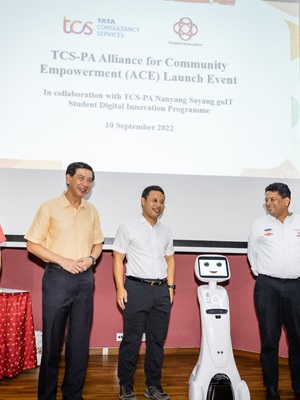The pandemic’s most enduring change to our lives is in the way we work. ESG’s most enduring change will be in the work we actually do.
A dramatic change in attitude towards 'the workplace', together with a core focus on ESG issues, is significantly altering employment practice. Employers are increasingly seeking to fill roles such as head of sustainability, climate compliance manager, green engineer, wind farm manager, renewable energy analyst and DEI coordinator. The list goes on, illustrating the broad scope of the ESG jobs revolution.
Companies need to fill these new roles and, crucially, young professionals are increasingly driven to work for organisations with a strong sustainability ethos. Therein lies the problem; the exponential growth of ESG implementation in economy and business has not been matched by the talent bank. Currently there is a real shortage of qualified environmental, governance and sustainability professionals. Employers have a key role to play in upskilling their existing workforce to fill this void, especially where AI is making humans redundant in traditional roles.
These changes taking place in the drive for sustainability are supported by the setting of global standards. The OECD Guidelines for Multinational Enterprises on Responsible Business Conduct cover several areas, including employment and industrial relations. Goal 8 of the UN’s Sustainable Development Goals calls for the promotion of sustainable economic growth on the basis of "full and productive employment and decent work for all."
Ironically, much of the new employment growth is happening within the main culprits of climate carnage. The transition from fossil fuels to renewable energy is resulting in a net increase in jobs for the energy sector. According to research by LinkedIn, globally the manufacturing, oil and gas sectors have the highest levels of ‘green skill intensity’. The ancillary work oil companies are doing to develop biodegradable ‘plastics’ is an example of this major source of high staff growth.
Diversity and equality
After decades of frustration at the slow pace of change, equality in employment, especially with regard to women and minorities, has moved forward much quicker in the ESG era. Japan consistently ranks lowest among developed economies in terms of gender equity. But even Japan, the most patriarchal society, has taken notable steps to address gender equality in the workforce. It has revised its corporate governance code, requiring companies to establish and disclose policies and goals on diversity, while also mandating gender pay gap disclosures for companies.
In Hong Kong, the local stock exchange has also recently updated board diversity disclosure requirements for listed companies. The HKEx has given listed companies until the end of this year to ensure that each board includes at least one woman. The exchange has identified 500 firms that have all-male boards, many of which are Chinese state-owned companies, who may struggle to meet the requirement, since there are few female executives within SOEs to begin with.
Diversity, equity and inclusion (DEI) is now a high priority for any organisation in Asia Pacific looking to enhance its ESG credentials. But the region is still moving at a relatively slower pace compared to North America and Europe. In the absence of robust legislation on DEI disclosures, the business case and stakeholder expectations are still the main drivers of DEI in the region.
Having focused initially on the D and the I, companies are now slowly addressing the need for equity. Australia and New Zealand are at the forefront of gender equity, especially following the introduction of new legislation on gender pay gap disclosure.
Ultimately, as equality issues are now a core aspect of employment law and recruitment policy, it is incumbent on employers to adopt gender neutral language and focus on competency-based requirements, to increase the proportion of female applicants. The offer of flexible working arrangements, including work from home support, has become part of mainstream employment contracts post-Covid, which also helps bridge the gender gap.
Above all, to ensure their sustainability, companies must invest in upskilling their existing workforce. For their part, young professionals will need to develop the skills necessary to support the drive for sustainability. As they grapple with the workplace implications of AI, these new green jobs are one way of ensuring their survival.
Posted 14/03/2024

















